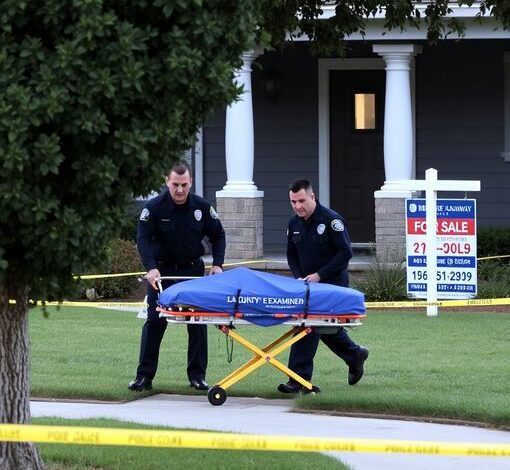Bill Cobbs, the veteran actor whose warm presence and steady performances enriched American film and television for more than four decades, has died at the age of 90. He passed peacefully at his home in California on June 25, surrounded by family. His brother, Pastor Thomas G. Cobbs, confirmed the news in a heartfelt post online, writing simply but poignantly: “Bill died peacefully at his home.” The announcement marked the end of an extraordinary life that spanned from humble beginnings in Ohio to a career in Hollywood that left an indelible mark on audiences around the world.
Best remembered by many for his roles in films such as The Bodyguard, Night at the Museum, and New Jack City, Cobbs was far more than a supporting actor. His resume, stretching across more than 100 film and television credits, reflected a career defined not by flashy stardom but by consistency, reliability, and a natural ability to breathe humanity into every role he played. Whether he appeared for just a few moments on screen or carried an entire subplot, Cobbs had a way of making viewers remember him.
Born in Cleveland, Ohio, in 1934, Cobbs’ journey to acting was anything but conventional. Before Hollywood, he served as a radar technician in the U.S. Air Force, where he honed a discipline and quiet strength that would later become trademarks of his screen persona. After his military service, he took on a variety of jobs—selling cars, working in office environments, and moving through the day-to-day grind of ordinary life. Acting, at that point, was not yet on his radar. It wasn’t until his mid-30s, an age when many might consider chasing dreams too late, that Cobbs decided to pursue acting seriously.
His first credited role came in 1974, in the classic thriller The Taking of Pelham One Two Three. It was a modest part, but one that opened doors. Over the years, Cobbs became known in casting circles as a dependable character actor who could lend credibility to almost any scene. His gravitas allowed him to seamlessly play doctors, mentors, wise old men, or authoritative figures, each performance carrying authenticity.
Through the 1980s and 1990s, Cobbs’ face became familiar even if his name wasn’t always on the tip of viewers’ tongues. He appeared in Trading Places alongside Eddie Murphy, Demolition Man with Sylvester Stallone, and earned admiration in roles across popular television shows. Younger audiences discovered him later through appearances in series like Agents of S.H.I.E.L.D. and other modern projects. But it was often the quieter performances that stayed with people—moments where he played ordinary men with extraordinary depth, imbuing each character with the lived-in wisdom of someone who understood hardship and resilience.
In 1992, Cobbs reached one of his career high points with his role in The Bodyguard. Sharing the screen with Whitney Houston and Kevin Costner, he delivered a supporting performance that grounded the drama, embodying the role of someone both trustworthy and strong. Years later, his whimsical role in Night at the Museum, as one of the elderly security guards, introduced him to a whole new generation. Children who saw the film may not have known his name at the time, but they remembered his warmth and humor.
Cobbs’ career longevity was matched by his dedication to his craft. He continued acting well into his later years, taking roles that many younger performers would envy. His performances were never about stealing scenes; they were about adding truth to them. Casting directors knew they could rely on him, and fellow actors often described him as generous, humble, and deeply professional. His presence on set, by all accounts, lifted others.
Only a few weeks before his passing, Cobbs celebrated his 90th birthday. Surrounded by family and friends, he marked the occasion with gratitude and joy. For someone who never seemed interested in fame for its own sake, the milestone was less about public recognition and more about the private satisfaction of a life well lived. Friends and colleagues recalled that he spent that day laughing, telling stories, and reflecting on the many twists of his journey—from Cleveland to the Air Force to Hollywood.
News of his death sparked an immediate flood of tributes across social media. Fans described his performances as timeless and soulful. Fellow actors and filmmakers remembered him as “a gentleman” and “an absolute legend.” A Nashville-based producer summed it up: “Country lost one of its brightest lights today” — a statement reflecting not only Cobbs’ cinematic work but also the warmth he carried into every project. His ability to connect with audiences was universal; his characters resonated with people from all walks of life because he portrayed them with dignity and truth.
Cobbs’ story is also a reminder that it is never too late to pursue a dream. He did not begin acting until most people would consider the window closed. Yet by trusting his instincts and dedicating himself to the craft, he built a career that spanned forty years and touched millions. He was proof that artistry is not bound by age but by passion and persistence.
He leaves behind more than just a filmography; he leaves behind a legacy of representation. For many African American viewers, seeing Cobbs in prominent supporting roles offered a reflection of dignity and strength in an industry that often typecast or overlooked Black performers. Though he may never have been the leading man, he was the anchor—the steady hand that held stories together.
As fans revisit his films in the days and weeks following his death, they will find not just performances but memories: the wisdom in his eyes, the humor in his delivery, the quiet authority that made every character feel lived-in and real.
Cobbs’ passing marks the close of a remarkable chapter in Hollywood, but his work will continue to resonate. Children discovering Night at the Museum for the first time will laugh at his mischievous grin. Young adults rediscovering The Bodyguard will find comfort in his presence. Longtime fans will continue to return to the dozens of smaller roles where Cobbs elevated scripts simply by being in them.
He lived a full life—military service, ordinary jobs, an extraordinary late-blooming career, and decades of contributions to art. He will be remembered not just for the films he graced, but for the reminder that life’s second acts can be the most meaningful. Bill Cobbs, the actor who never needed to be the star to shine, has left us. But the roles he brought to life, and the quiet dignity with which he carried himself, will endure.




